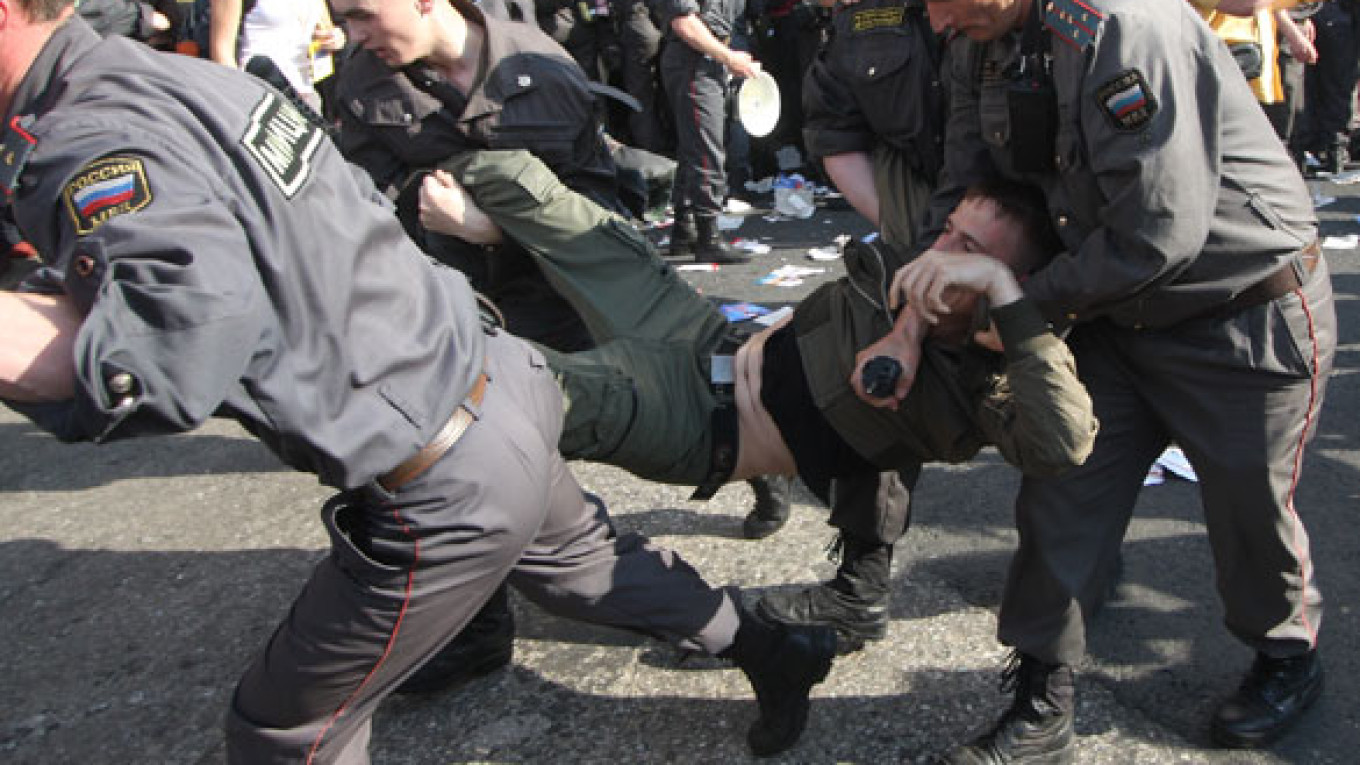The argument is often made that democracy is unsuitable for certain nations. But there are objective factors in the modern world that are pushing humanity more toward democracy than ever before.
First, we have the lessons of history that resulted from the rule of totalitarian regimes in the 20th century. On the one side, there are the extreme right-wing regimes of Adolf Hitler, Benito Mussolini and the Japanese militarists. On the other, there are the extreme left-wing regimes of Josef Stalin, Mao Zedong, Kim Jong Il? and Pol Pot. The movements of the left and the right proclaimed different ideals and pursued different goals, but their actions and the consequences of those actions were identical — violence, human enslavement and the complete collapse of the state and society.
Second, ideological factors play a large role. The principles of democracy are universally recognized and included in the United Nations Charter. And even the most notorious dictators must pretend that they are upholding democratic principles by adopting a democratic-sounding constitution, imitating democratic elections, creating mock parliaments and declaring their commitment to human rights.
Third, the modern economy also requires democratization. Totalitarianism stifles manufacturers’ motivation to produce, squelches initiative, interferes with the unrestricted exchange of ideas, goods and financial and technological resources and impedes the free movement of individuals. In the Soviet Union, citizens were denied the right to open their own businesses, produce goods or to sell them privately. The outside world was off-limits, and without first obtaining special permission, people were not allowed to travel abroad. It was also difficult to obtain many foreign books or purchase foreign-made goods. The authorities viewed all technical progress as a threat to the underpinnings of national security. The list of sensitive technologies included typewriters, photocopiers and fax machines. When computers first came out in the 1980s in select government agencies, simple access to their use was guarded as if they were top-secret.
In objection to these arguments, some politicians and analysts point to examples of successful economic development in the authoritarian “small Asian tigers” — South Korea, Taiwan, Singapore, as well as the “big tiger” of China. There is some basis to that argument, but we should not forget that for many centuries those societies were very backward. Only when they began assimilating liberal economic ideas from the West did they begin to show growth. And when the “small tigers” reached a certain level of development, the needs of the market economy and the aspirations of the fledgling middle class put pressure on the authoritarian regimes to liberalize.
In some countries, this liberalization process was peaceful and gradual, and in others it was accompanied by turmoil. The big tiger of China has yet to undergo large-scale democratization only because it is still at a relatively immature stage of its development, considering the vast areas of the country that are still largely undeveloped. If China’s economic development continues at its current pace, in 20 years or so it will reach a point where democratization becomes a mandatory condition to avoid economic stagnation. We can only hope that when China finally does go through this process of democratization, it will do so peacefully.
As for the Soviet Union, democratic reforms arrived too late. By the mid 1980s, the Communist system was already terminally ill. Every attempt by Soviet leader Mikhail Gorbachev to restructure the economy while keeping the Communist system in place failed. Gorbachev adopted a policy of democratization to help energize people’s initiative and creative talents, which in turn was supposed to breath life into the dying economy. But democratization eroded the very foundation of the Soviet regime, while at the same time unleashed separatist forces in the Soviet republics, including within the Russian Republic.
Russia and the other former Soviet republics can develop further only by adopting democratic principles and institutions. Otherwise, they will inevitably fall into stagnation and collapse once again.
Yevgeny Bazhanov is vice chancellor of research and international relations at the Foreign Ministry’s Diplomatic Academy in Moscow.
A Message from The Moscow Times:
Dear readers,
We are facing unprecedented challenges. Russia's Prosecutor General's Office has designated The Moscow Times as an "undesirable" organization, criminalizing our work and putting our staff at risk of prosecution. This follows our earlier unjust labeling as a "foreign agent."
These actions are direct attempts to silence independent journalism in Russia. The authorities claim our work "discredits the decisions of the Russian leadership." We see things differently: we strive to provide accurate, unbiased reporting on Russia.
We, the journalists of The Moscow Times, refuse to be silenced. But to continue our work, we need your help.
Your support, no matter how small, makes a world of difference. If you can, please support us monthly starting from just $2. It's quick to set up, and every contribution makes a significant impact.
By supporting The Moscow Times, you're defending open, independent journalism in the face of repression. Thank you for standing with us.
Remind me later.


